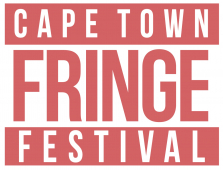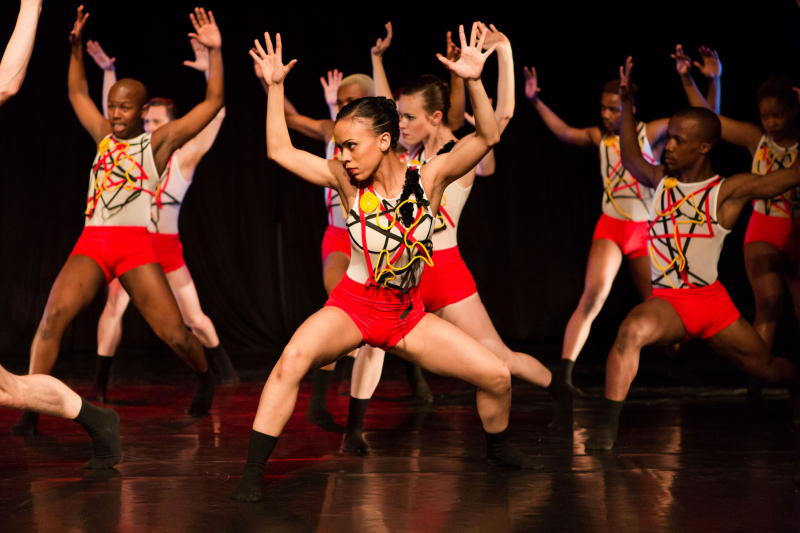This year’s Cape Town Fringe, an 18-day festival of theatre, dance, comedy and music, was marked by new beginnings that auger well for the future of arts in the city, said the Fringe’s Executive Producer Ashraf Johaardien.
“We went in some new directions this year with a conscious move to increase access to the festival, and to broaden its impact,” Johaardien said. “Disruption is never the easy route. We wanted to shake things up and navigate new pathways for the theatre community in Cape Town. It meant that there were many learning curves and this is really just the beginning of a new journey for us and the wider industry.”
This year was the fourth year the Fringe was held and saw the event extend its reach way beyond the city centre to include venues in Khayelitsha, Philippi, Delft, Nyanga, Observatory, Rondebosch and Retreat.
“The evolution just made sense,” said Cape Town Fringe CEO Tony Lankester. “We wanted to travel to the hearts of our communities and audiences, giving them the opportunity to experience the Fringe in their own neighbourhoods.”
The “decentralised model” had some drawbacks and some lessons will be taken forward next year, says Johaardien.
“We need to work on how we to retain that ‘festival feeling’ across a decentralised model and how to will market to a very broad sector of audiences across the metropole with a limited budget.”
Johaardien pointed out that the Fringe’s venue partners played an integral role in marketing the festival as they knew their markets best. Working more closely with the venues on both programming and marketing would ensure success in years to come.
“The Festival may have seen a retreat in ticket sales to 2015 levels, but access to our various events was far greater than before. There were more important rewards and recognition for the performing arts community and we are going to build on this positive foundation.”
The Cape Town Fringe was spread across 13 venues in 10 locations.
Khayelitsha venue, the Makukanye Art Room, hosted 21 productions during the Cape Town Fringe and saw good audiences at most events.
Mandisi Sindo, Artistic Director and Producer at the Makukhanye Art Room, said: “2017 was the rebirth of the Cape Town Fringe Festival, an example of what the festival was supposed to be from its inception and conceptualisation. I think the festival organisers took progressive steps, tapping into townships or disadvantaged communities to showcase and bring forth the talent that is booming and this will make the festival grow to become a national inclusive festival. I am looking forward to seeing many changes and growth in the next festival.”
In response to being asked how the event should evolve, Sindo suggested that more attention be paid to the issue of artist remuneration. “Artists should become a priority and not rely on door takings but get commission or be paid for services rendered. There is no festival without these artists, so let’s make a plan for them to be happier.”
Caroline Calburn, owner of Observatory venue Theatre Arts Admin Collective, commented: “With the new emphasis on the development of independent theatres and a shift on supporting artists rather than constricting them financially, I was delighted to be part of the Cape Town Fringe. The work that the Cape Town Fringe did in turning the Theatre Arts Admin Collective into a beautiful theatre after years of struggling and scrounging was overwhelmingly emotional for me. And that it remains a beautiful theatre for use by all artists in Cape Town throughout the year is a total gift.

“I loved being part of a circuit of independent theatres and already we are working at trying to build on and utilise this circuit to support artists and develop and grow audiences. If the City of Cape Town continues to support this festival for the next three years, the achievements will be HUGE – for communities, for artists and for the emotional state of our city.” – Caroline Calburn, Theatre Arts Admin Collective
The Cape Town Fringe also worked with Alma Café in Rondebosch to create a venue dedicated to live music.
Alma Café co-owners Richard and Retha Tait said: “It was a very rewarding experience to be part of a ‘global’ Cape Town event. We do believe that our city is at the forefront of true multi-cultural and diverse live arts and entertainment. A great advantage for us was exposure for the venue – predominantly new patrons attended and expressed interest. The courageous effort by the Cape Town Fringe, City of Cape Town and all the sponsors was admirable.”
Cllr JP Smith. Mayoral Committee Member for Safety, Security and Events, pledged the City of Cape Town’s ongoing support for the festival at the Cape Town Fringe’s Fringe Fresh Awards ceremony, which was held on 8 October.


Have Your Say